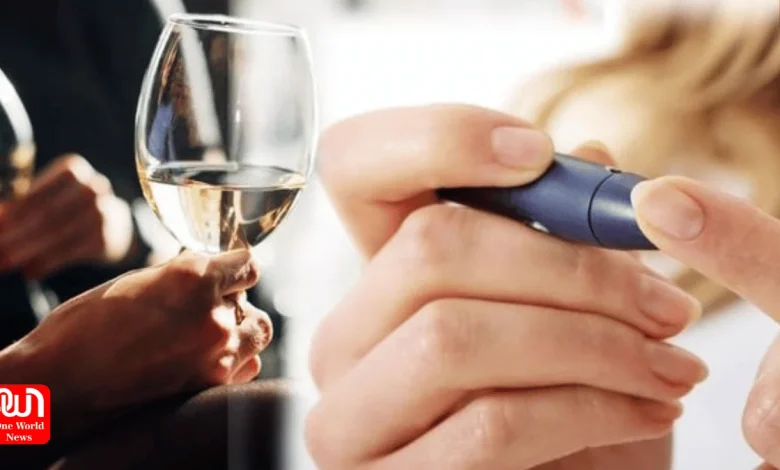Diabetes and Alcohol Consumption: Understanding the Impact on Blood Sugar Levels
Learn how alcohol affects blood sugar in diabetes. Initial drops followed by rises may affect management. Moderation and monitoring are key for health.

Understanding the Impact of Alcohol Consumption on Blood Sugar Levels in Individuals with Diabetes
It is essential for those with diabetes to be informed on the ability of alcohol to alter blood glucose levels, to ensure they lead healthy lives. Here’s a comprehensive look at what happens when you consume alcohol with diabetes:

1. Initial Impact on Blood Sugar: Alcohol first of all reduces the blood sugar levels. This is because alcohol negatively affects the liver’s capacity to generate glucose hence may cause hypoglycemia if insulin or diabetes medication is not properly managed.
Reasd more: Top 5 Fibre-Rich Foods To Reduce Hunger And Reduce Weight Naturally
2. Delayed Effects: Conversely, after the immediate fall, alcohol contributes to the diabetics’ sugar levels soaring miraculously. This is because when taking alcohol, the liver that is busy breaking it is also responsible for releasing stored glucose and hence making the blood sugar levels to rise.
3. Risk of Hypoglycemia: If one is on insulin or certain other types of diabetes medication, they are at risk of getting hypoglycemia when they take alcohol especially if taken on an empty stomach or a lot of it.
4. Carbohydrate Content: Analyzing alcoholic drinks, one can identify that all types of drinks may contain different amounts of carbohydrates. Drinks with added sugars include more carbohydrates and can be easily converted to blood sugar.
Read more: Know the 5 reasons to sip on warm lemon water in the morning
5. Monitoring and Awareness: Diabetic patients are advised to regulate their blood sugar levels before, while, and after the time of, consuming alcohol. Maintaining such a record has a benefit to know patients’ reactions to various forms and quantities of alcohol.
6. Safety Precautions:
To minimize risks, consider these precautions:To minimize risks, consider these precautions:
• Eat Before Drinking: Eating food when you are taking alcohol means it will take long for the food to be absorbed hence there will be constant supply of sugar in the bloodstream.
• Stay Hydrated: It is indicated that drinking alcohol can lead to insufficient water in the body hence making it difficult for the body to regulate blood sugar. Flavored water taken together with alcoholic beverages also help in the process of hydration.
• Communicate with Healthcare Providers: Explain the tendencies of alcohol consumption to doctors and other healthcare providers for necessary changes of medications and insulin.
7. Moderation and Balance: When it comes to the consumption of alcohol in patients with diabetes it is also admissible but only in moderation. When used properly it is safe to engage in without necessarily risking one’s health and wellbeing due to the knowledge of the impacts it may have.
We’re now on WhatsApp. Click to join.
Understanding how alcohol affects diabetes care helps people make smart choices to keep their blood sugar steady and stay healthy. Always put health first and talk to doctors for advice that’s just right for you.
Like this post?
Register at One World News to never miss out on videos, celeb interviews, and best reads.







